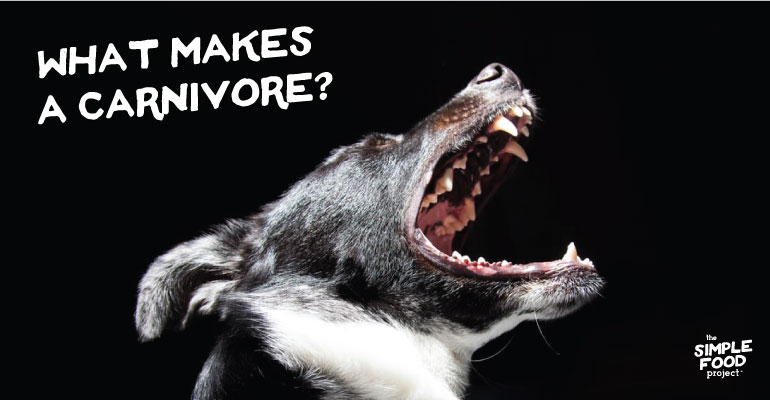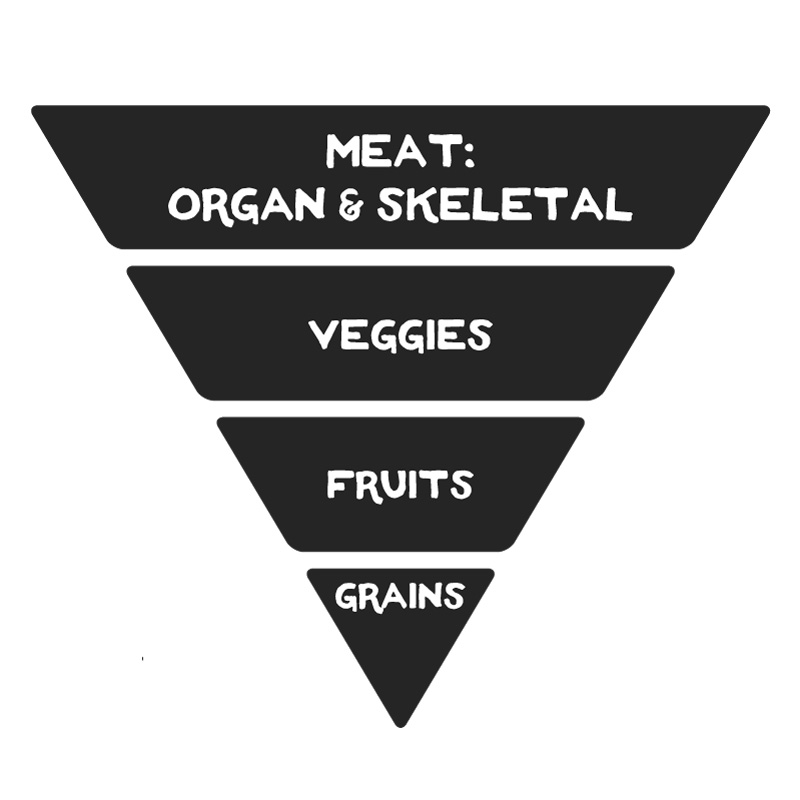
Teeth & Mouth Structure
Carnivores have tightly-interdigitated teeth for ripping and tearing food, or crunching bones. Their canine teeth are also much larger. Overall, a carnivore’s teeth and mouth are shaped, structured, and aligned differently than an omnivore’s or herbivore’s to accommodate their different dietary requirements.
Their teeth aren’t built for long-term chewing projects either. Cows chew incessantly, and this chewing is great contributor to the overall digestion of their grass-based diet. Herbivores and omnivores grind up their food into mush, whereas carnivores only tear and chomp food into smaller chunks that can be swallowed.










